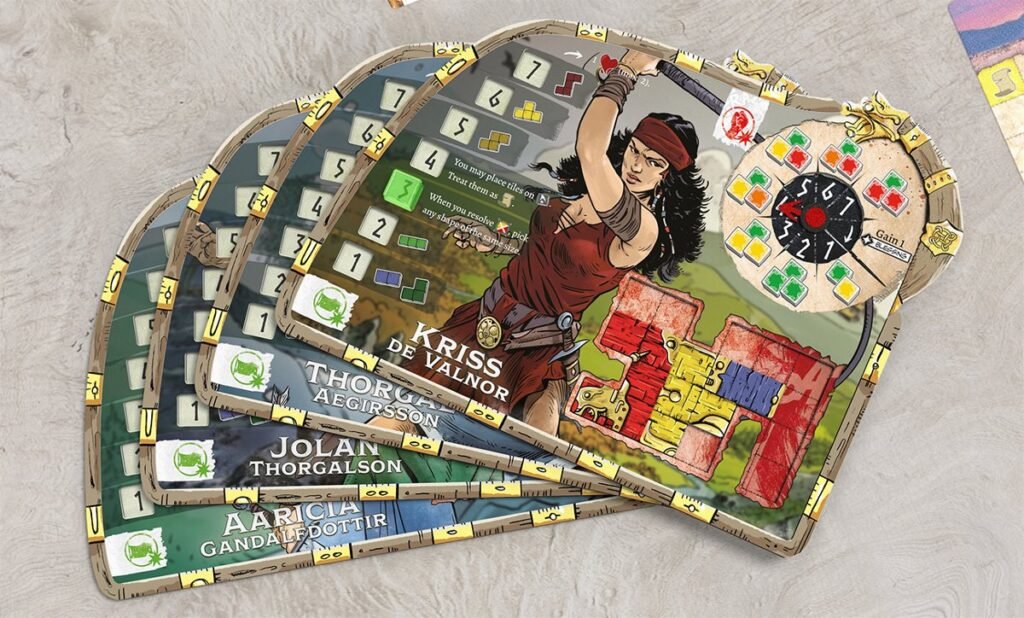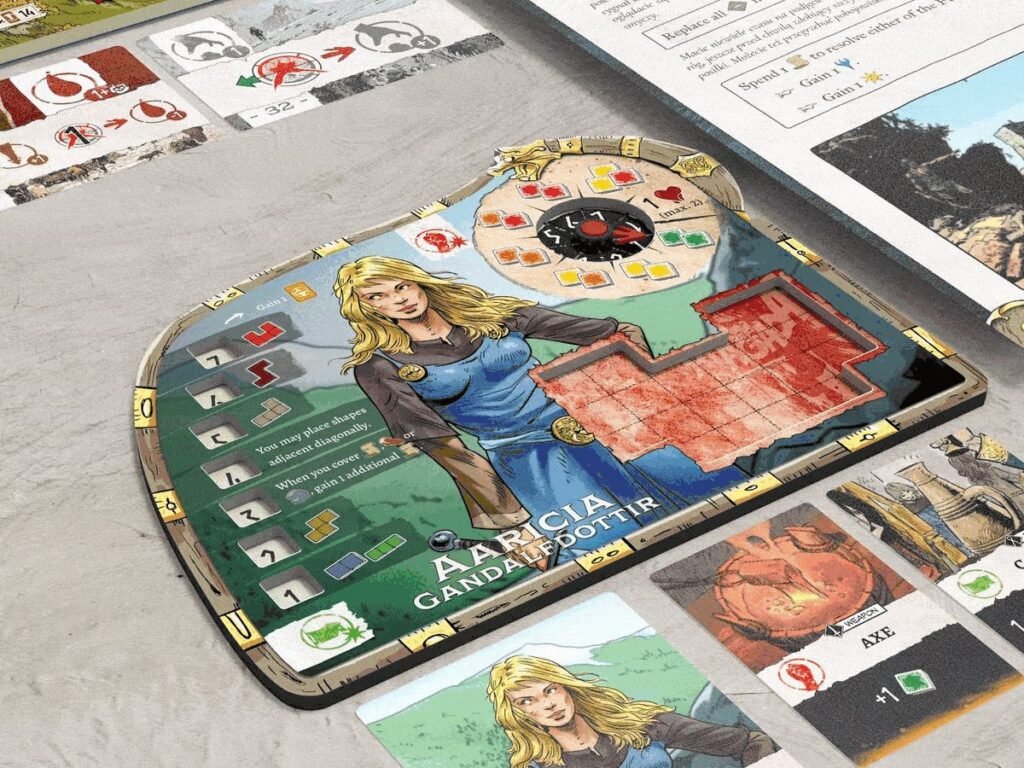Let’s see how Characters gain Experience and how to balance personal development and progress of the story in a limited time.
Death May Die has the best Experience points slash Character development rules ever. Eric Lang is a genius. Rob Daviau is a genius. And since we’ve already established that, let’s talk about the character development rules in Thorgal!
From the beginning, we wanted, just like in Death May Die, for players to have the possibility of character development during the game. And just like in Death May Die, we didn’t have an entire campaign for it, we didn’t have the possibility of development between games because Thorgal has, like Robinson Crusoe, individual scenarios. The entire character development process had to be closed in one game.
We added locations and heroes in every scenario that allowed players to train and develop. They could go to specific locations and improve their character. They could spend one of their precious actions on development action.
I say precious actions because that’s how it is in Thorgal. The scenarios are short and tight, every action is worth its weight in gold, and there’s no time for some random side-quests. If you’re training in horseback riding, you might not have enough time to gather allies in a nearby village. If you’re training archery, you might not make it to the far-off blacksmith’s tower on the map. If you want to gain one thing, you might lose another.
We wanted the decision about character development to be an important choice for players. In Thorgal, there’s no situation where for the first 30% of the game, all players are growing their character like Pikachu, and then, loaded with upgrades, they go to meet the boss. The flow of the game is different, there are a lot of things to take care of here, the number of places to visit is huge, and there is not much time left for character training.
And yet, it is so important.
Choosing the right moment to take a break from the main plot and gain a few XP is key.

In Thorgal, players can also acquire Experience Points (XP) and develop their characters during combat (see Update #4). When a player fights an opponent, they can try to arrange their attack tiles in such a way as to cover the XP symbol and get free development. During the fight, they learn something new and immediately develop. Often, this comes at the cost of injury. Often, to acquire XP, the player must choose to arrange their attack tiles in such a way that, by covering the XP icon, they also expose themselves to an attack from the opponent. What choice will you make? Will you sacrifice yourself to grab a few Experience Points?
Players look for these short moments of a slower pace, moments when another player must unlock the location, convince an ally to cooperate, and we have that short moment to take a break, grab XP and then quickly get back to the main story. Players know how important it is to develop and how important it is to have better fighting and exploration options, but at the same time, they know they must do it in parallel with the mission, in parallel with the adventure’s plot. If they spend several turns just on development, the scenario will end before it even starts.
How do they spend XP? Players spend them on two development paths: the Warrior and Wanderer paths. The Warrior path is related to combat and allows players to upgrade the dice they use in battle. Each character has a special circle with the dice available to them, and by acquiring XP, they can gain access to better dice, which provide larger shapes and more choices during specific attacks.
The Wanderer path, on the other hand, unlocks a greater selection of shapes needed to explore new areas and allows players to gain additional abilities or items that aid in exploration and survival. It also allows access to special skills related to gathering resources, such as more wood or unique resources like rumors and myths, by passing close to settlements and gathering spots.

In Thorgal: the board game, character development is an exciting and meaningful choice for players. It is integrated into the gameplay. Players need to weigh the importance of investing in combat or exploration, depending on what is important to them and the needs of the scenario. Players must also consider the trade-offs of spending their valuable actions on character development rather than on other objectives such as gathering allies or acquiring equipment. This makes for a fun and dynamic game experience where players must think strategically and make decisions that will impact the game’s outcome.
Find out more about Thorgal here: https://gamefound.com/projects/portalgames/thorgal-the-board-game
 Polski
Polski English
English Deutsch
Deutsch



